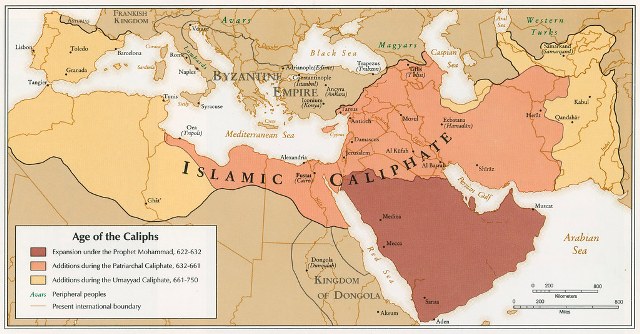Islamic scholars have been the guardians of knowledge, preserving the teachings of the Holy Quran and the Sunnah of Prophet Muhammad (PBUH) for over a millennium. Their efforts during the Golden Age of Islam and beyond ensured that religious, scientific, and cultural knowledge thrived, influencing the world. Rooted in the Quran and authentic Hadith, their work in compiling texts, teaching, and translating made Islam’s wisdom accessible across generations. This article explores six key ways Islamic scholars preserved knowledge, offering inspiration for Muslims and non-Muslims alike. By understanding their contributions, we can appreciate the enduring legacy of Islamic learning.
The Importance of Knowledge in Islam
Knowledge as a Divine Command
Islam places immense value on seeking and preserving knowledge. The Quran instructs:
“Say: ‘My Lord, increase me in knowledge.’”
Surah Taha, Ayah 114
This verse reflects the divine encouragement to pursue knowledge, a duty embraced by Islamic scholars.
Prophetic Emphasis
The Prophet (PBUH) said, “Seeking knowledge is obligatory upon every Muslim” (Sunan Ibn Majah, Hadith 224). This Hadith underscores the importance of learning, which scholars fulfilled by preserving sacred texts and teachings.
Method 1: Compiling and Preserving the Quran
The Quran’s Preservation
Scholars ensured the Quran remained unchanged since its revelation. After the Battle of Yamama, Umar ibn Al-Khattab (RA) urged Abu Bakr (RA) to compile the Quran into a single book. Under Uthman ibn Affan (RA), a standardized copy was distributed. The Quran praises this effort:
“Indeed, it is We who sent down the Quran and indeed, We will be its guardian.”
Surah Al-Hijr, Ayah 9
This verse assures the Quran’s divine protection, fulfilled through scholars’ meticulous work.
Example
The Uthmani script remains the standard for Quranic texts today, ensuring accuracy for millions of Muslims.
Method 2: Collecting and Authenticating Hadith
Hadith Compilation
Scholars like Imam Bukhari (RH) and Imam Muslim (RH) dedicated their lives to compiling authentic Hadith. The Prophet (PBUH) said, “Convey from me, even if it is one verse” (Sahih Bukhari, Hadith 3461). Their rigorous methods ensured only authentic narrations were preserved.
Example
Imam Bukhari (RH) traveled widely to verify Hadith, compiling Sahih Bukhari, a cornerstone of Islamic knowledge used by students today.
Method 3: Developing Tafsir (Quranic Exegesis)
Explaining the Quran
Scholars like Imam Tabari (RH) and Ibn Kathir (RH) wrote Tafsir, detailed interpretations of the Quran, to clarify its meanings. The Quran encourages understanding:
“This is a blessed Book which We have revealed to you, that they might reflect upon its verses…”
Surah Sad, Ayah 29
Example
A modern Muslim studying Tafsir Ibn Kathir gains insight into Quranic verses, applying them to daily life.
Method 4: Establishing Islamic Educational Institutions
Centers of Learning
Scholars founded institutions like the House of Wisdom in Baghdad and Al-Azhar in Cairo, where religious and secular sciences were taught. The Prophet (PBUH) said, “Whoever follows a path to seek knowledge, Allah will make easy for him a path to Paradise” (Sahih Muslim, Hadith 2699).
Historical Impact
During the Golden Age, these centers translated Greek and Persian texts, advancing fields like medicine and astronomy, benefiting global knowledge.
Method 5: Teaching and Transmitting Knowledge
The Role of Scholars as Educators
Scholars like Imam Malik (RH) and Imam Shafi’i (RH) taught students who spread knowledge globally. The Quran emphasizes teaching:
“And say: ‘My Lord, cause me to enter a sound entrance and to exit a sound exit and grant me from Yourself a supporting authority.’”
Surah Al-Isra, Ayah 80
This verse reflects the scholars’ role in guiding others.
Example
A student in a non-Muslim country might attend an Islamic class inspired by the tradition of scholars like Imam Malik (RH).
Method 6: Writing and Translating Islamic Texts
Preserving Through Documentation
Scholars wrote books on Fiqh, theology, and history, and translated them into languages like Persian and Latin. The Prophet (PBUH) encouraged preserving knowledge: “When a person dies, his deeds cease except for three: ongoing charity, knowledge that benefits others, or a righteous child who prays for him” (Sahih Muslim, Hadith 1631).
Example
Translations by scholars like Al-Ghazali (RH) made Islamic philosophy accessible, influencing medieval Europe.
Addressing Common Misconceptions
Misconception 1: Islamic Scholarship Was Only Religious
Islamic scholars advanced sciences, mathematics, and medicine, integrating faith and reason, as seen in the House of Wisdom.
Misconception 2: Knowledge Preservation Stopped After the Golden Age
Scholars like Ibn Hajar (RH) and Al-Suyuti (RH) continued preserving knowledge into later centuries, and modern scholars maintain this tradition.
Challenge: Accessibility Today
Some believe Islamic knowledge is hard to access. Online platforms like Quran.com and Sunnah.com make texts widely available, continuing the scholars’ legacy.
Practical Lessons from Islamic Scholars
- Seek Knowledge: Enroll in Islamic courses or read Tafsir.
- Share Knowledge: Teach others, even small lessons.
- Support Education: Donate to Islamic schools or libraries.
- Use Technology: Access digital Hadith collections for study.
Conclusion: The Enduring Impact of Islamic Scholars
Islamic scholars preserved knowledge through compiling the Quran, authenticating Hadith, writing Tafsir, establishing schools, teaching, and translating texts. Their work, grounded in the Quran and Hadith, ensured Islam’s teachings reached every corner of the world. From Uthman’s (RA) Quran compilation to Imam Bukhari’s (RH) Hadith collection, their legacy continues to inspire. By learning and sharing knowledge, we honor their contributions and strengthen our faith in 2025 and beyond.







